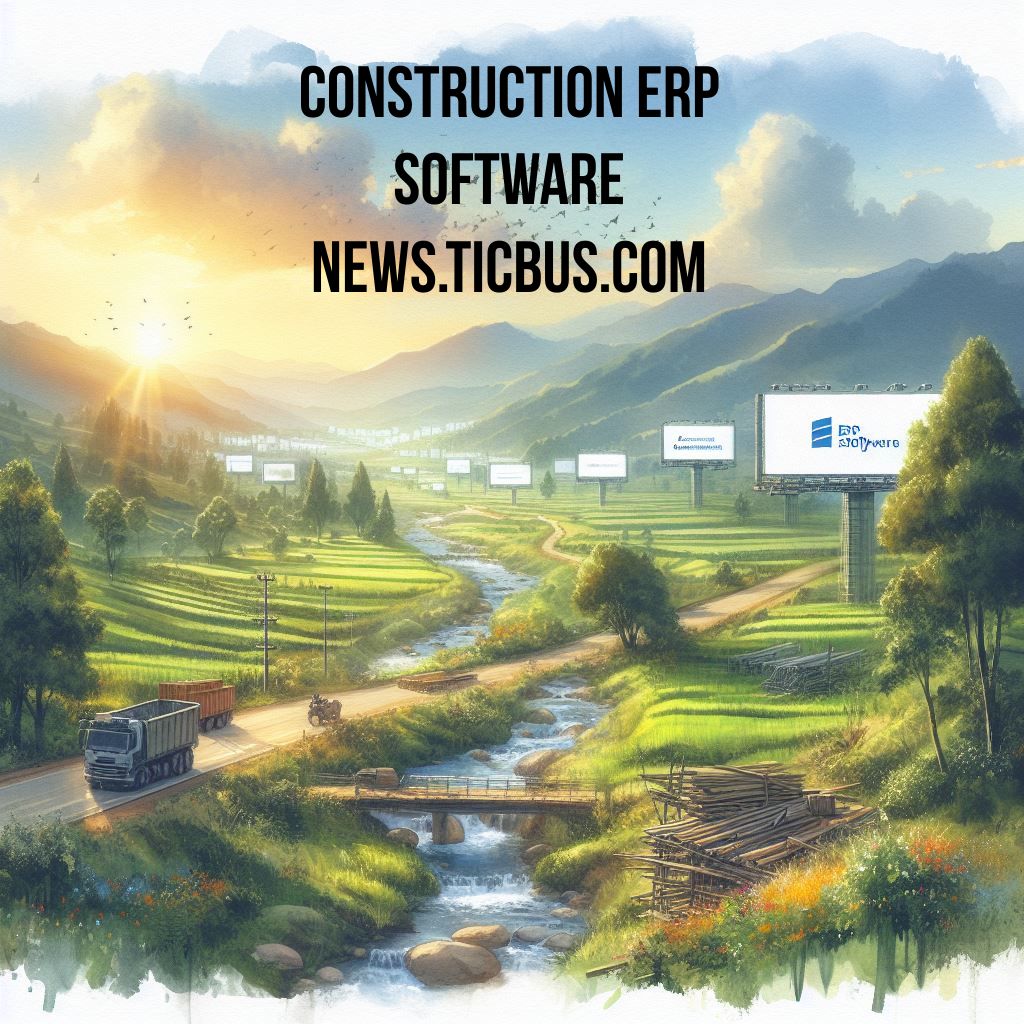The construction industry is continually evolving, and so is the technology that supports it. Construction ERP software plays a pivotal role in enhancing productivity, efficiency, and project management for construction companies. In this article, we delve into the latest news and advancements in construction ERP software, providing an in-depth analysis of how these innovations are reshaping the industry. As technology continues to advance at a rapid pace, staying informed about the latest developments in construction ERP software is essential for companies looking to maintain a competitive edge in today’s market.
Understanding Construction ERP Software
Construction ERP (Enterprise Resource Planning) software is a comprehensive solution designed to integrate various business processes, including project management, accounting, human resources, and supply chain management. These systems are tailored to meet the unique needs of the construction industry, ensuring seamless coordination and improved decision-making.
Key Features of Modern Construction ERP Systems
Modern construction ERP systems are equipped with a plethora of features aimed at optimizing operations and ensuring project success. Some of the standout features include:
- Real-Time Data Analytics: Provides instant access to critical data, enabling informed decision-making.
- Project Management Tools: Facilitates efficient project planning, scheduling, and execution.
- Financial Management: Offers robust accounting and budgeting capabilities.
- Supply Chain Management: Enhances procurement processes and supplier relationships.
- Human Resources Management: Streamlines recruitment, payroll, and employee management.
- Mobile Accessibility: Ensures that teams can access the ERP system from any location, improving communication and collaboration.
Recent Advancements in Construction ERP Software
Artificial Intelligence and Machine Learning Integration
The integration of Artificial Intelligence (AI) and Machine Learning (ML) into construction ERP software has revolutionized the industry. These technologies enable predictive analytics, which can forecast project outcomes, identify potential risks, and optimize resource allocation. AI-driven insights are proving invaluable in mitigating delays and cost overruns.
Cloud-Based Solutions
The shift towards cloud-based ERP solutions has been a game-changer for the construction industry. Cloud-based ERP systems offer several advantages, including scalability, cost-effectiveness, and enhanced data security. They allow construction firms to access their data from anywhere, facilitating better coordination and remote project management.
Enhanced Collaboration Tools
Modern ERP systems are equipped with advanced collaboration tools that enable seamless communication among project stakeholders. Features such as real-time messaging, document sharing, and integrated project dashboards ensure that everyone is on the same page, reducing the likelihood of misunderstandings and errors.
Advanced Reporting and Analytics
The latest construction ERP software comes with sophisticated reporting and analytics capabilities. These tools provide comprehensive insights into project performance, financial health, and operational efficiency. Customizable dashboards and real-time reports allow managers to make data-driven decisions, enhancing overall project outcomes.
Benefits of Adopting Construction ERP Software
Improved Efficiency and Productivity
Construction ERP software automates many time-consuming processes, such as data entry, reporting, and scheduling. This automation leads to significant improvements in efficiency and productivity, allowing teams to focus on more strategic tasks.
Better Financial Management
With integrated financial management tools, construction ERP systems provide accurate and up-to-date financial information. This transparency helps in better budgeting, forecasting, and financial planning, ensuring that projects stay within budget.
Enhanced Project Management
The project management capabilities of construction ERP software are unparalleled. These systems offer tools for scheduling, resource allocation, and task management, ensuring that projects are completed on time and within scope.
Greater Data Accuracy and Consistency
ERP systems centralize data, reducing the risk of errors and inconsistencies. This centralization ensures that all project stakeholders have access to the same accurate and up-to-date information, facilitating better decision-making and coordination.
Challenges in Implementing Construction Erp Software News.Ticbus.Com
While the benefits of construction ERP software are numerous, implementation can be challenging. Some common challenges include:
- High Initial Costs: The upfront investment for ERP software can be substantial, which may be a barrier for smaller construction firms.
- Complexity: ERP systems can be complex to implement and require a significant amount of time and resources for successful deployment.
- Training and Change Management: Ensuring that employees are adequately trained and can adapt to the new system is crucial for successful implementation.
Case Studies: Successful Implementation of Construction ERP Software
Case Study 1: Large-Scale Commercial Project
A leading construction firm undertook a large-scale commercial project and faced challenges in managing multiple subcontractors and suppliers. By implementing a cloud-based ERP solution, the firm was able to streamline procurement processes, improve communication with subcontractors, and gain real-time insights into project progress. The result was a significant reduction in delays and cost overruns.
Case Study 2: Residential Development
A residential development company struggled with manual data entry and fragmented systems, leading to inefficiencies and errors. By adopting an integrated ERP system, the company achieved better data accuracy, streamlined operations, and enhanced project management capabilities. This led to improved customer satisfaction and higher profit margins.
The Future of Construction ERP Software
The future of construction ERP software looks promising, with continued advancements in technology driving further improvements. Key trends to watch include:
- IoT Integration: The Internet of Things (IoT) will play a critical role in construction ERP systems, providing real-time data from connected devices and sensors.
- Blockchain Technology: Blockchain can enhance transparency and security in construction projects, particularly in areas such as contract management and supply chain traceability.
- Augmented Reality (AR) and Virtual Reality (VR): AR and VR technologies will offer new ways to visualize and manage construction projects, improving planning and collaboration.
Conclusion
In conclusion, Construction Erp Software News.Ticbus.Com is an indispensable tool for modern construction firms. The latest innovations in AI, cloud computing, and advanced analytics are driving significant improvements in efficiency, productivity, and project management. By staying abreast of these advancements and embracing new technologies, construction companies can ensure their continued success in an increasingly competitive industry.



